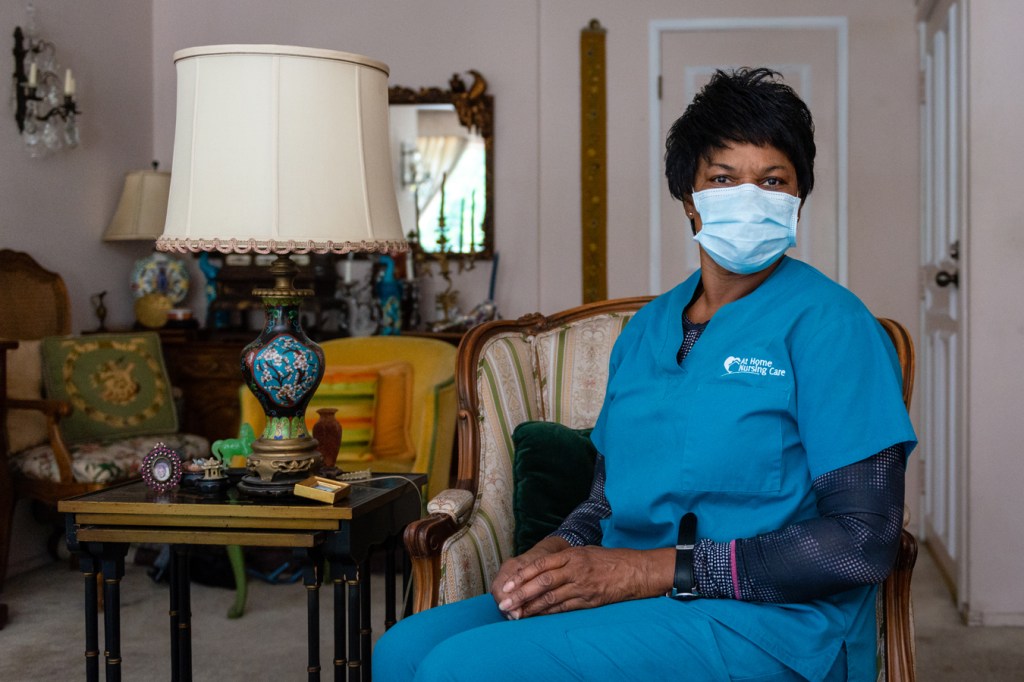WEST HOLLYWOOD, California — Pauline Lawrence tiene 63 años, una edad que la pone en mayor riesgo si contrae el nuevo coronavirus.
Sin embargo, tres días a la semana, pasa 16 horas con alguien que corre un riesgo aún mayor: un hombre de 97 años que depende de ella y de otros dos ayudantes de salud en el hogar para sobrevivir.
“Alguien tiene que cuidarlo”, dijo Lawrence, un inmigrante de Jamaica que vive con su hijo de 30 años en un apartamento del sur de Los Angeles. “Estoy dispuesta a hacer lo que sea necesario para ayudar”.
En virtud de la orden estatal californiana de “quedarse en casa”, que tiene por objeto detener la propagación del coronavirus, así como de otras órdenes similares emitidas por ciudades y condados, muchas empresas deben cerrar completamente. Más de 30 gobernadores han emitido órdenes similares para sus estados.
Pero estas normas permiten que las empresas “esenciales” permanezcan abiertas y que los trabajadores “esenciales” sigan en sus puestos de trabajo.
¿A quién se considera “esencial”? Para empezar, a los trabajadores de la salud, las fuerzas del orden, a los plomeros y a los empleados de los supermercados. Pero hay muchos trabajadores considerados esenciales, como los empleados de los dispensarios de cannabis y de la industria del entretenimiento según la orden estatal de California, y los jardineros y paisajistas según la orden del condado de Los Ángeles.
Entre las personas que siguen trabajando, sin el lujo de poder hacerlo desde casa, hay un alto porcentaje de trabajadores con salarios bajos, que ganan un promedio de $10,22 por hora, según un reciente análisis nacional de Brookings Institution. Y entre estos trabajadores, los afroamericanos y los latinos están sobre-representados en comparación con su participación en la fuerza laboral total.
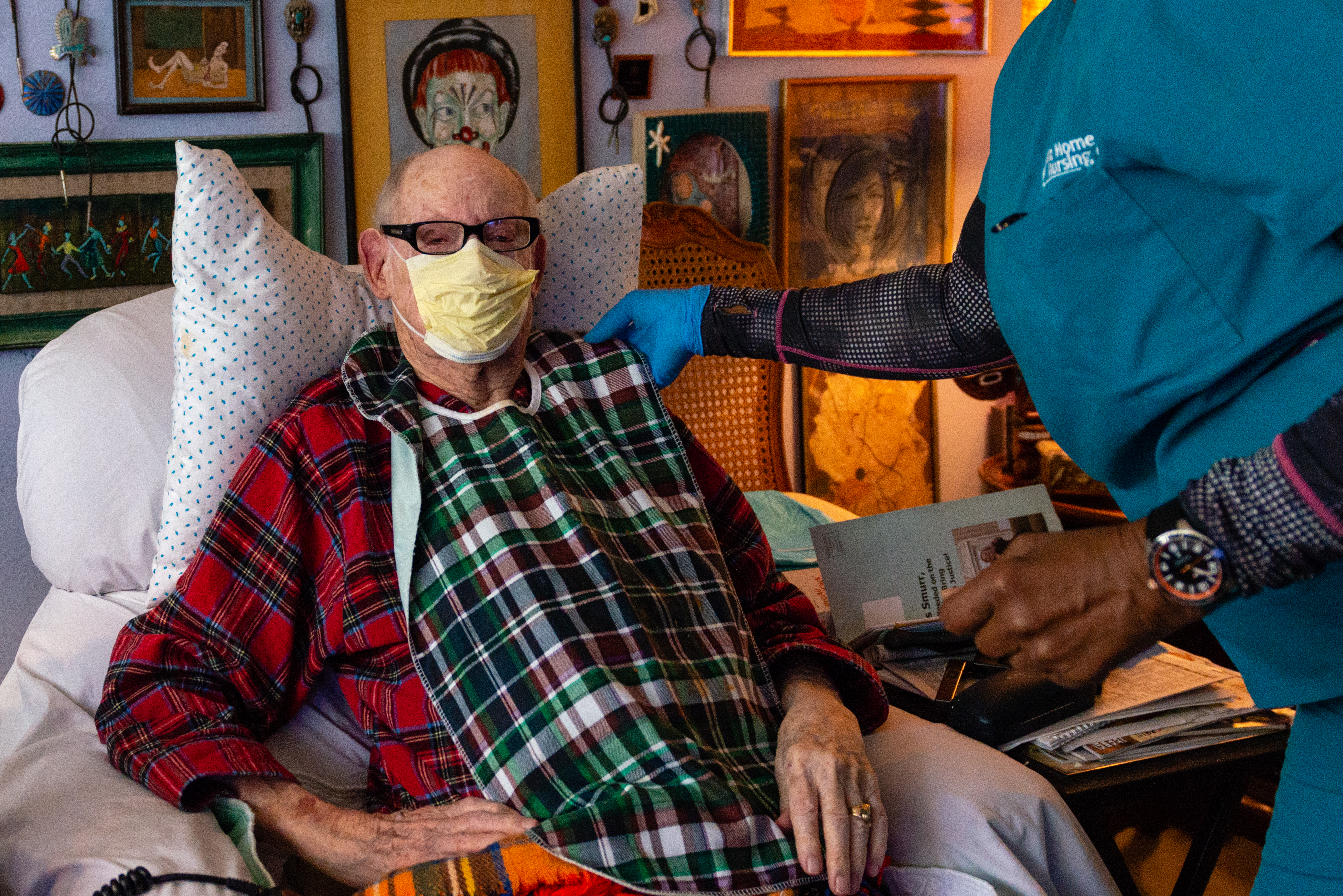
Lawrence cuida a Charles Smurr, de 97 años, un gerente retirado. Smurr vive solo y depende de tres ayudantes de salud en el hogar para sus necesidades cotidianas, de 7:30 am a 11:30 pm, todos los días. "No tengo miedo de seguir trabajando", dice Lawrence. "Soy una mujer de Dios". (Heidi de Marco/California Healthline)
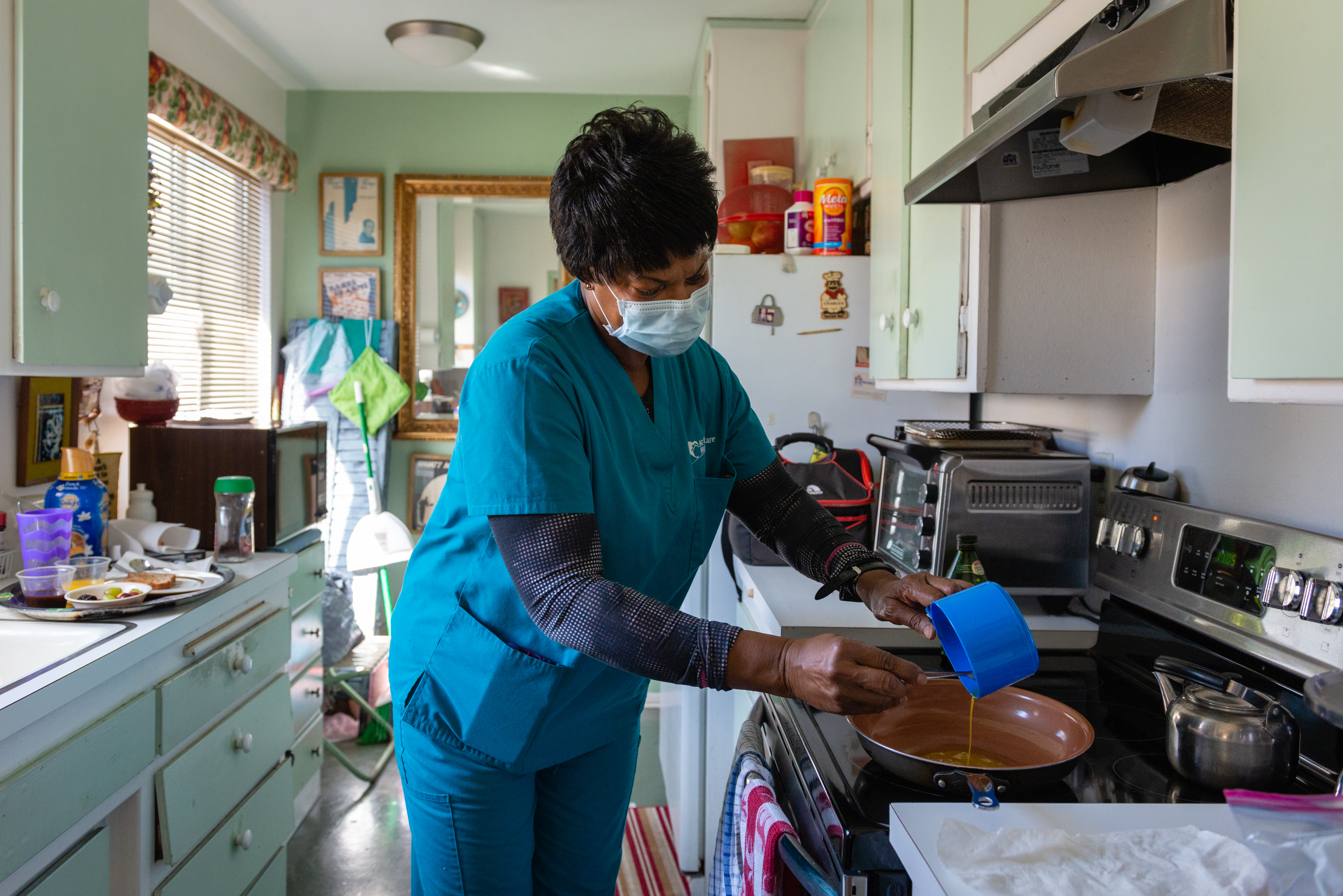
Lawrence, que usa equipo de protección durante su turno, lo desinfecta todo cuando entra en el apartamento de dos habitaciones, y mientras trabaja. Después que se va, dice, hace todo lo posible para evitar que los gérmenes entren en su casa. "Me quito la ropa y la pongo en una bolsa de plástico antes de entrar en mi casa". (Heidi de Marco/California Healthline)
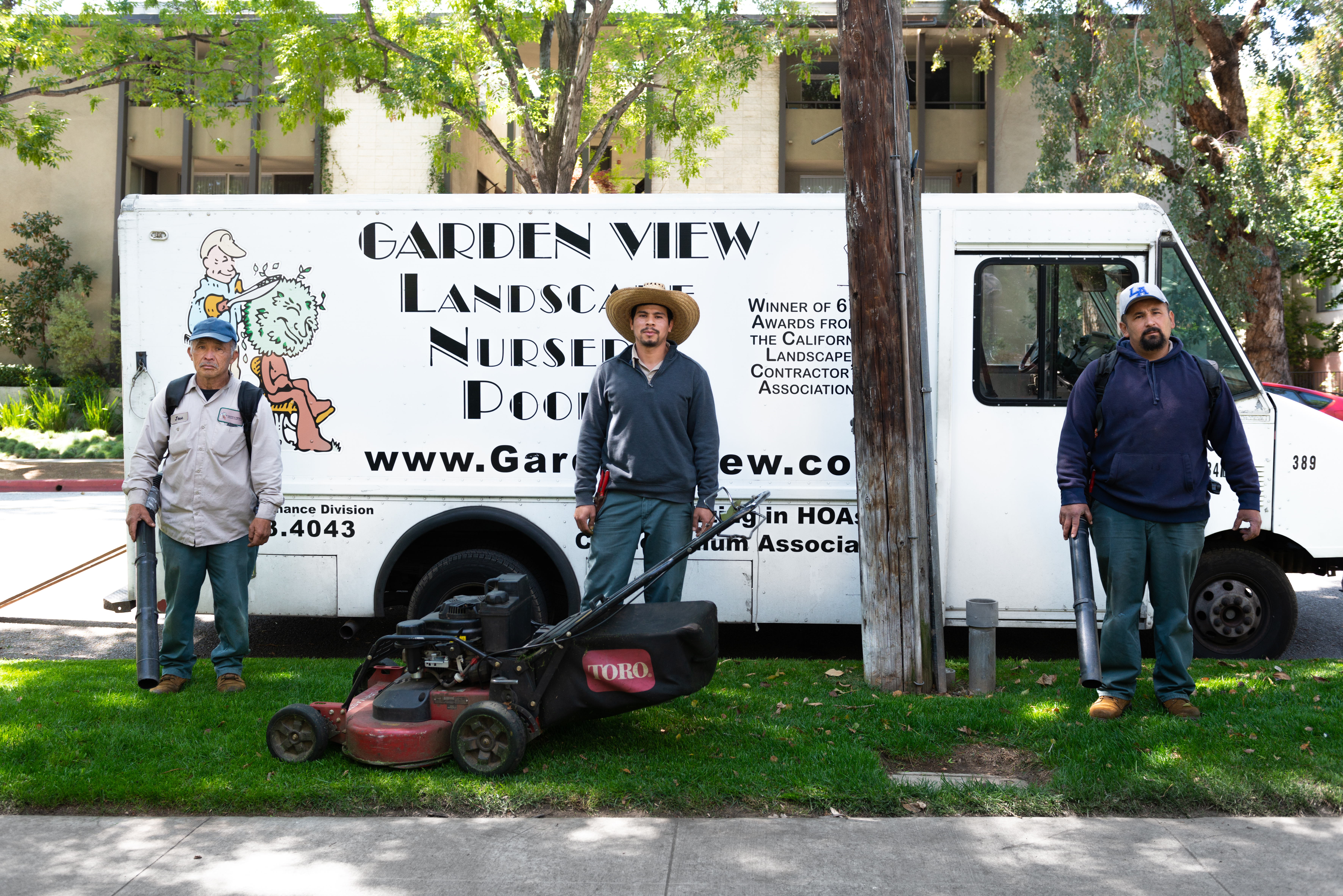
De izq. A der., José Solorio, de 56 años, Ismael García, de 33, y Oscar Bravo, de 41, son paisajistas en Pasadena, California. "Estamos preocupados como todos, pero nuestro riesgo es menor que si trabajáramos en una oficina", dice García. (Heidi de Marco/California Healthline)
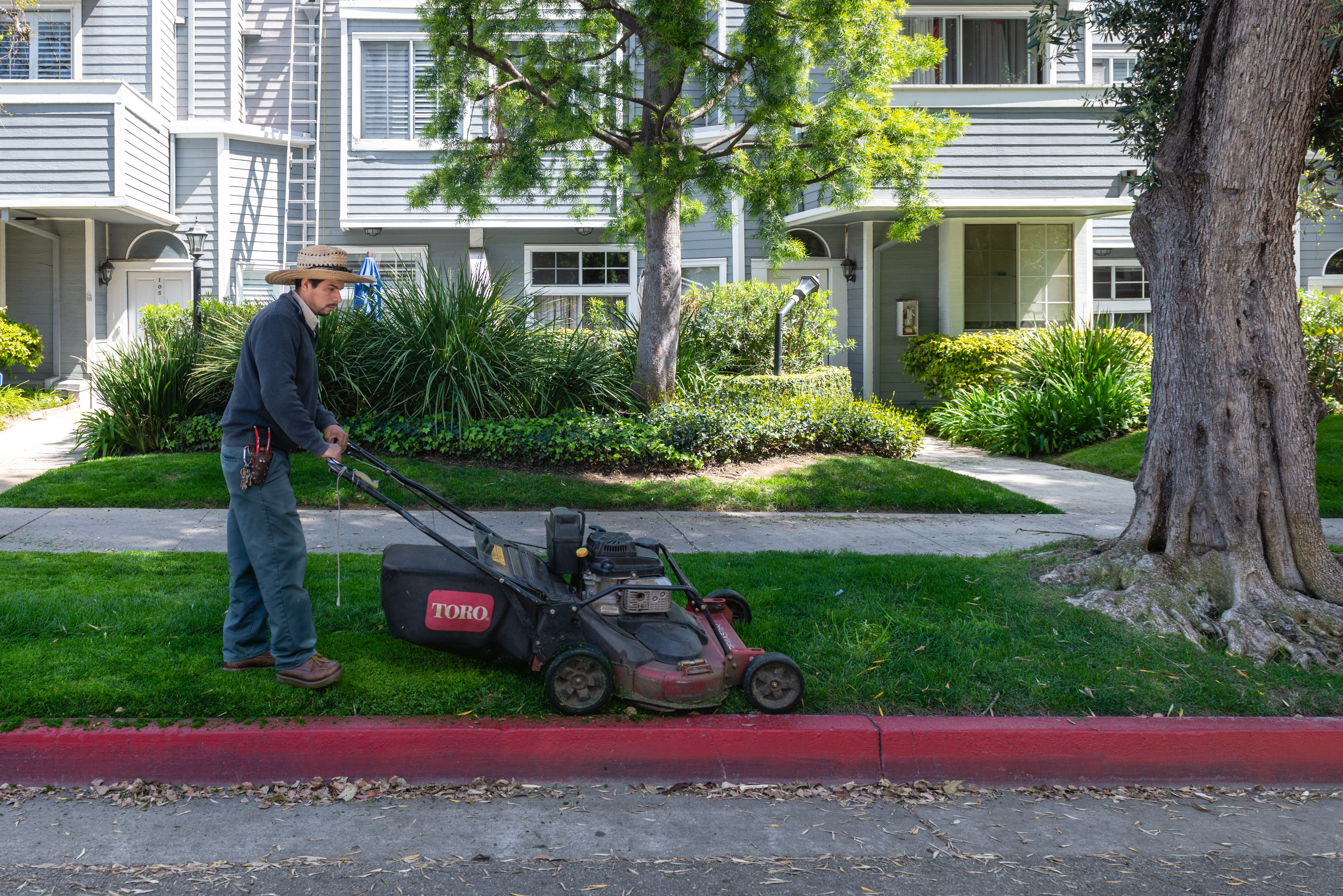
No estamos obligados a trabajar, pero tenemos que pagar la renta, dice Ismael García, de Pasadena, California. (Heidi de Marco/California Healthline)
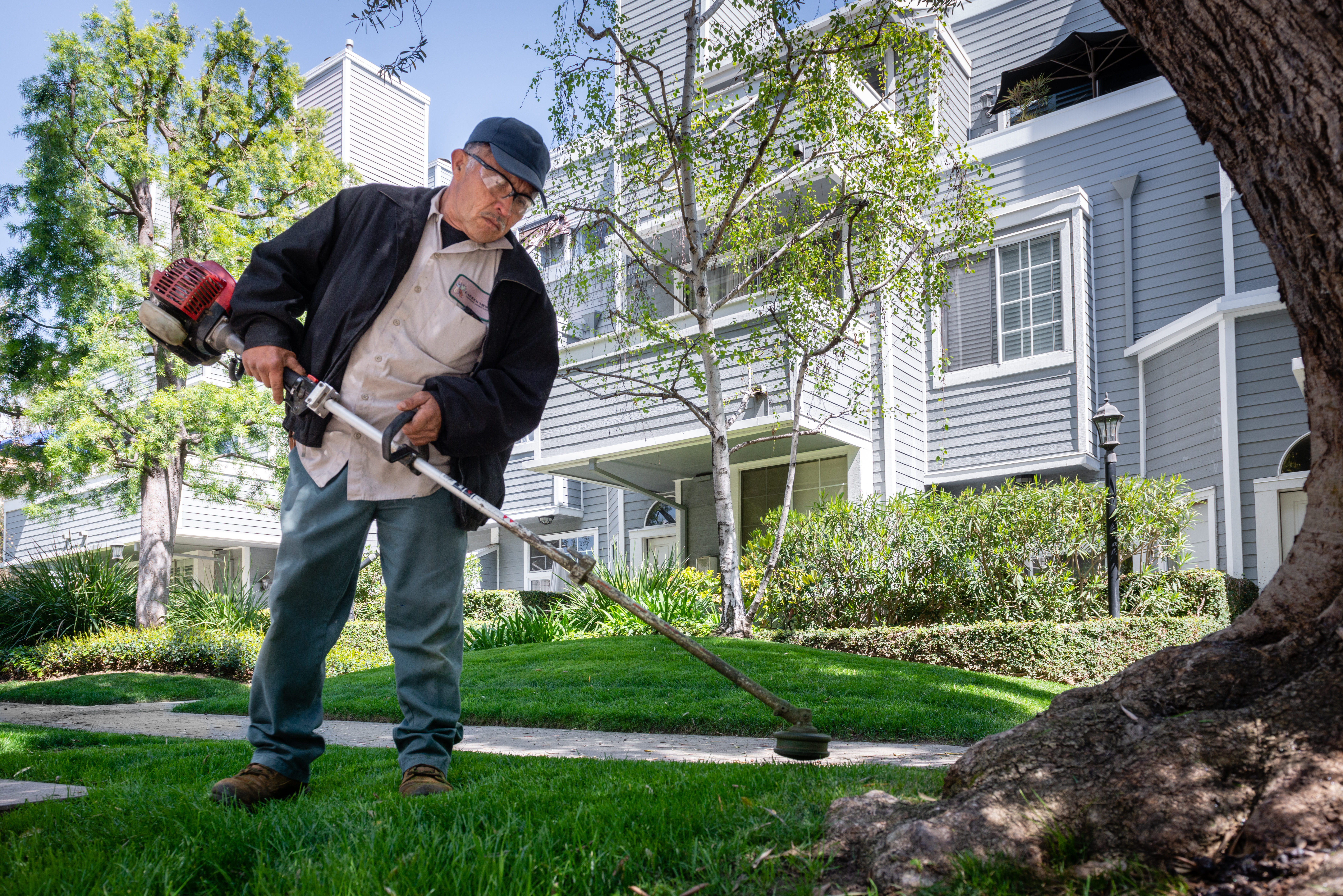
José Solorio dice que seguirá trabajando mientras pueda. Al igual que sus compañeros de trabajo, es el principal proveedor de su familia. "Está en manos de Dios", dice sobre la amenaza de enfermarse. (Heidi de Marco/California Healthline)
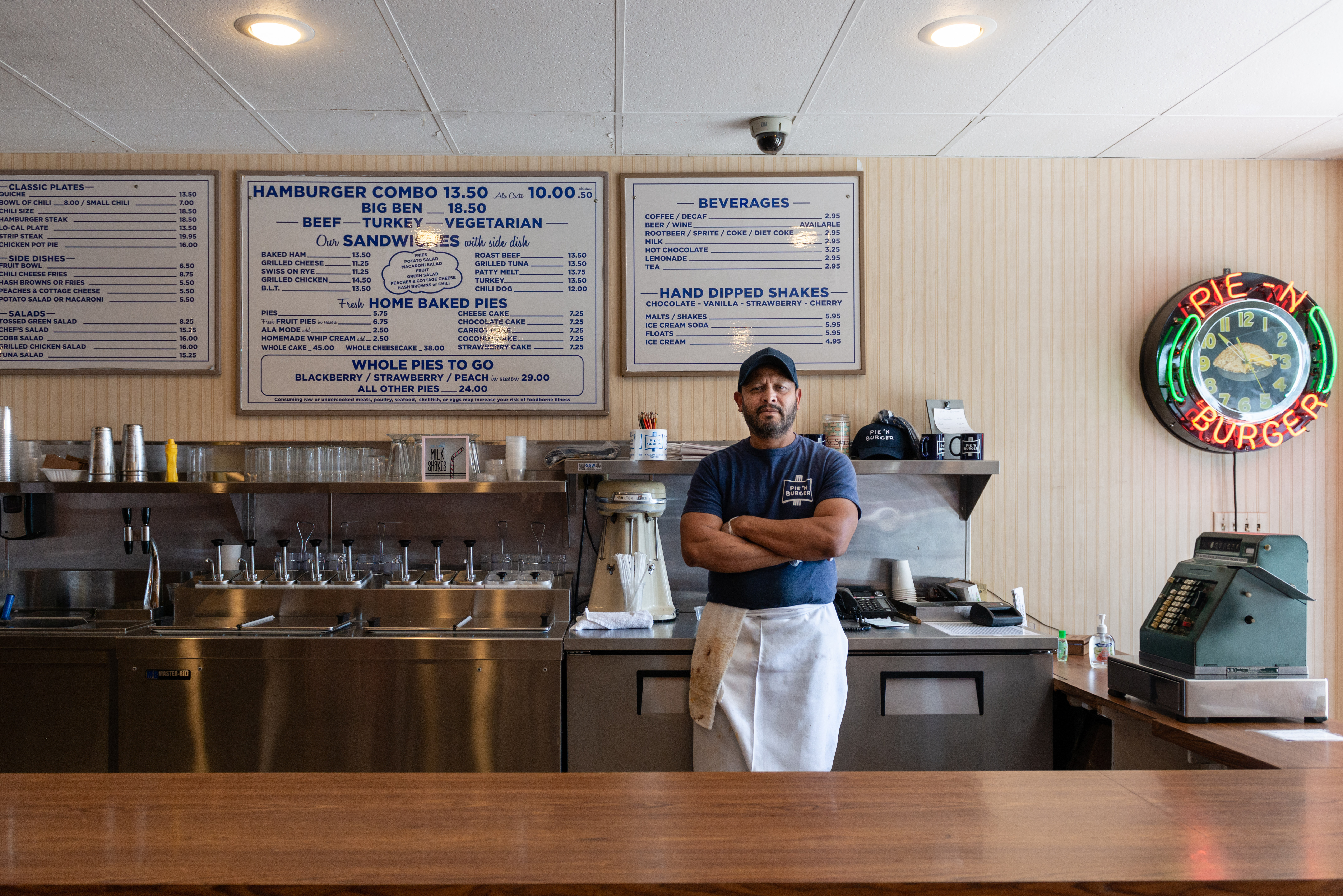
Tony Serrato, de 34 años, es cocinero en Pie 'n Burger en Pasadena, donde los pedidos de comida para llevar lo mantienen ocupado. Le redujeron las horas cuando la orden de quedarse en casa entró en vigor, y ahora trabaja 20 horas a la semana, cuando solían ser 40. "No es suficiente, pero es algo", dice. (Heidi de Marco/California Healthline)
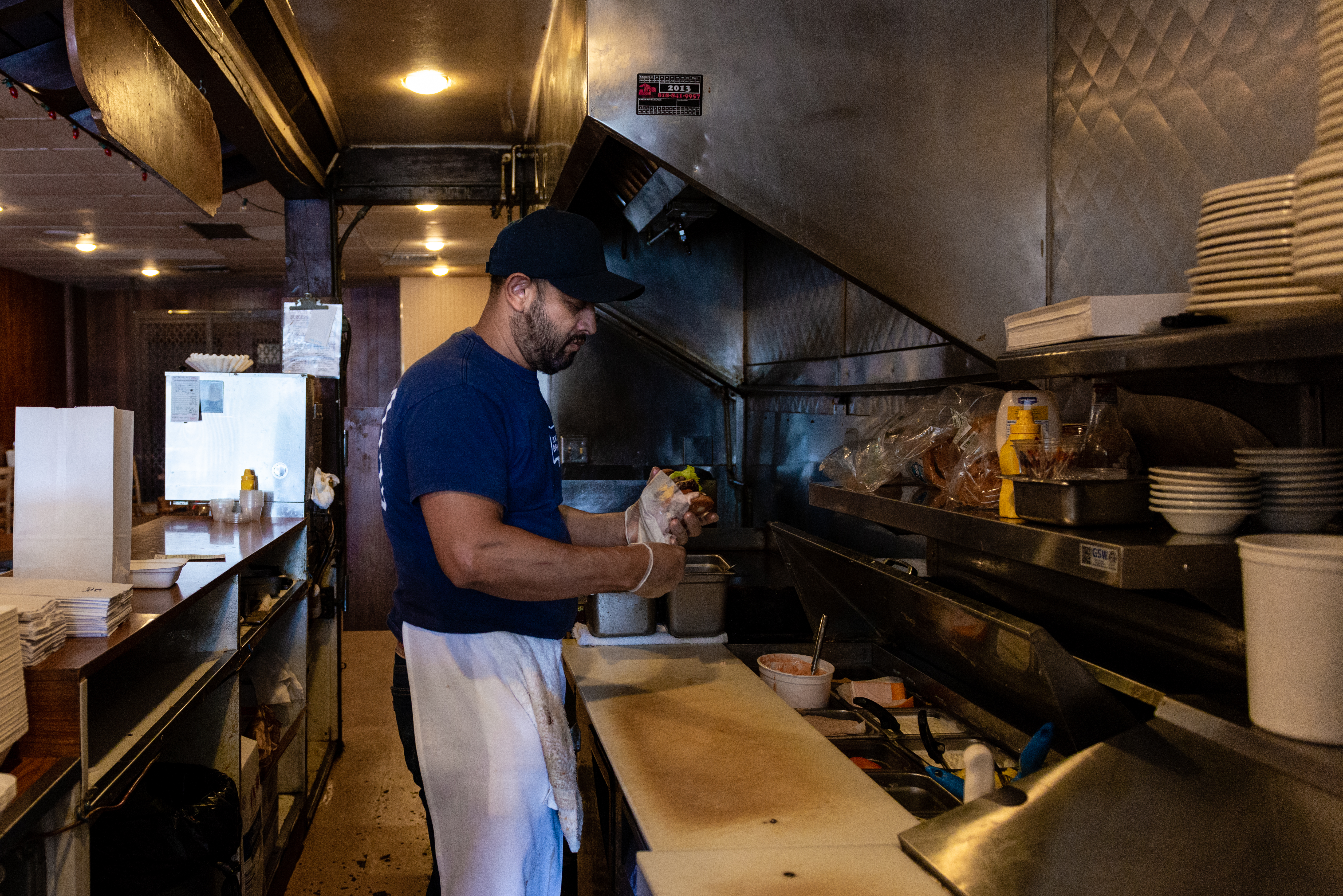
Serrato prepara una hamburguesa. Pie 'n Burger emplea sólo dos trabajadores por turno bajo las nuevas reglas del coronavirus: un cocinero y una persona que responde a los teléfonos. El propietario Michael Osborn dice que el restaurante sólo hace un tercio de su negocio regular y produce unas 120 hamburguesas al día. Osborn tuvo que despedir a 25 empleados cuando llegó la orden de cerrar los restaurantes, excepto para el servicio de comida para llevar o para que los clientes recojan la orden. Lo describe como la cosa más difícil que ha tenido que hacer. (Heidi de Marco/California Healthline)
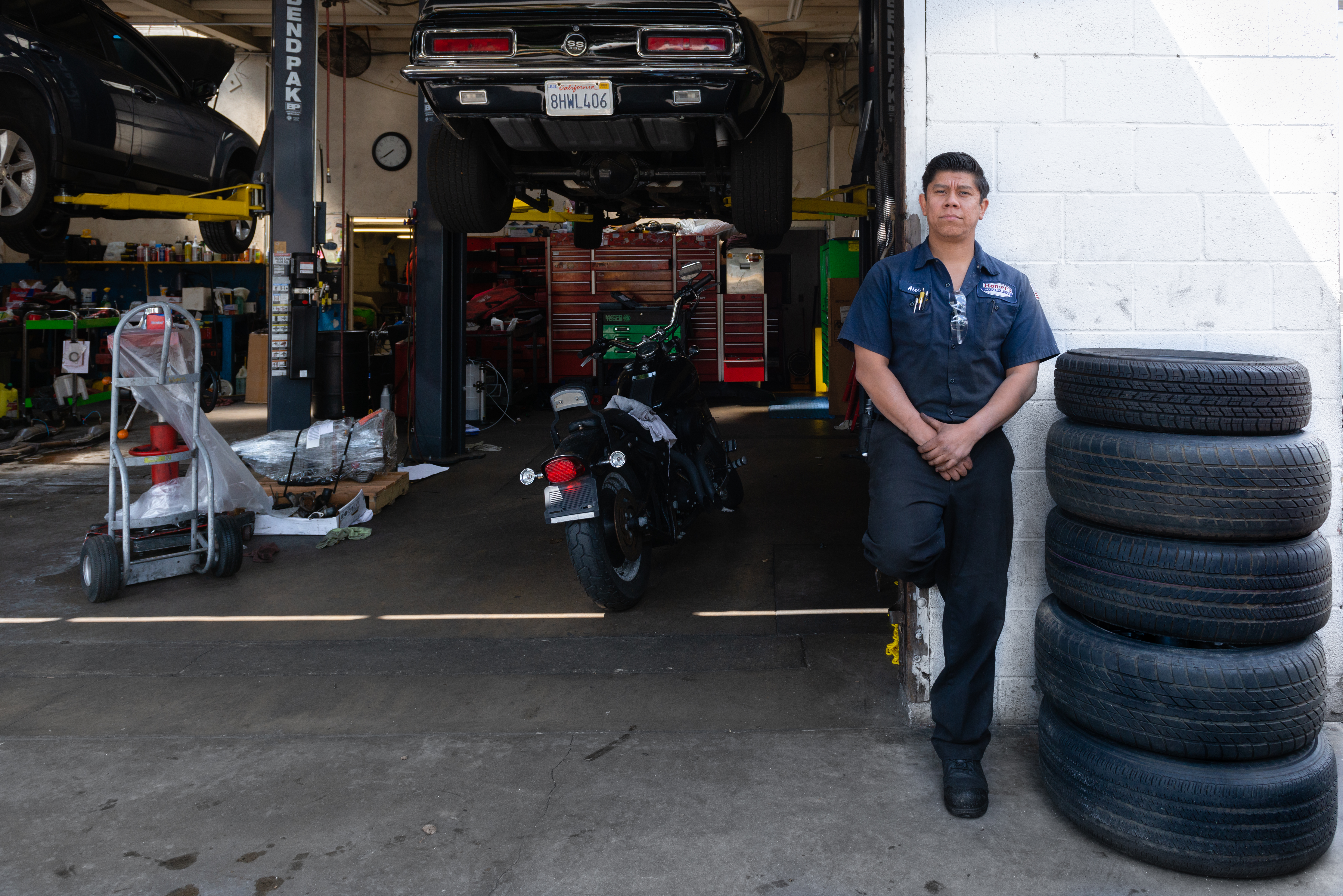
Gustavo Rojas, de 33 años, trabaja como mecánico en Homer's Auto Services, en Monrovia, California. Rojas dice que el trabajo es consistente pero más lento que antes. "Todo el mundo necesita su auto", dice. Rojas es parte de un equipo de tres. Los mecánicos no usan máscaras y sólo a veces usan guantes, pero Rojas dice que limpian las partes que más se tocan en un auto cuando llega al taller, especialmente el volante. (Heidi de Marco/California Healthline)
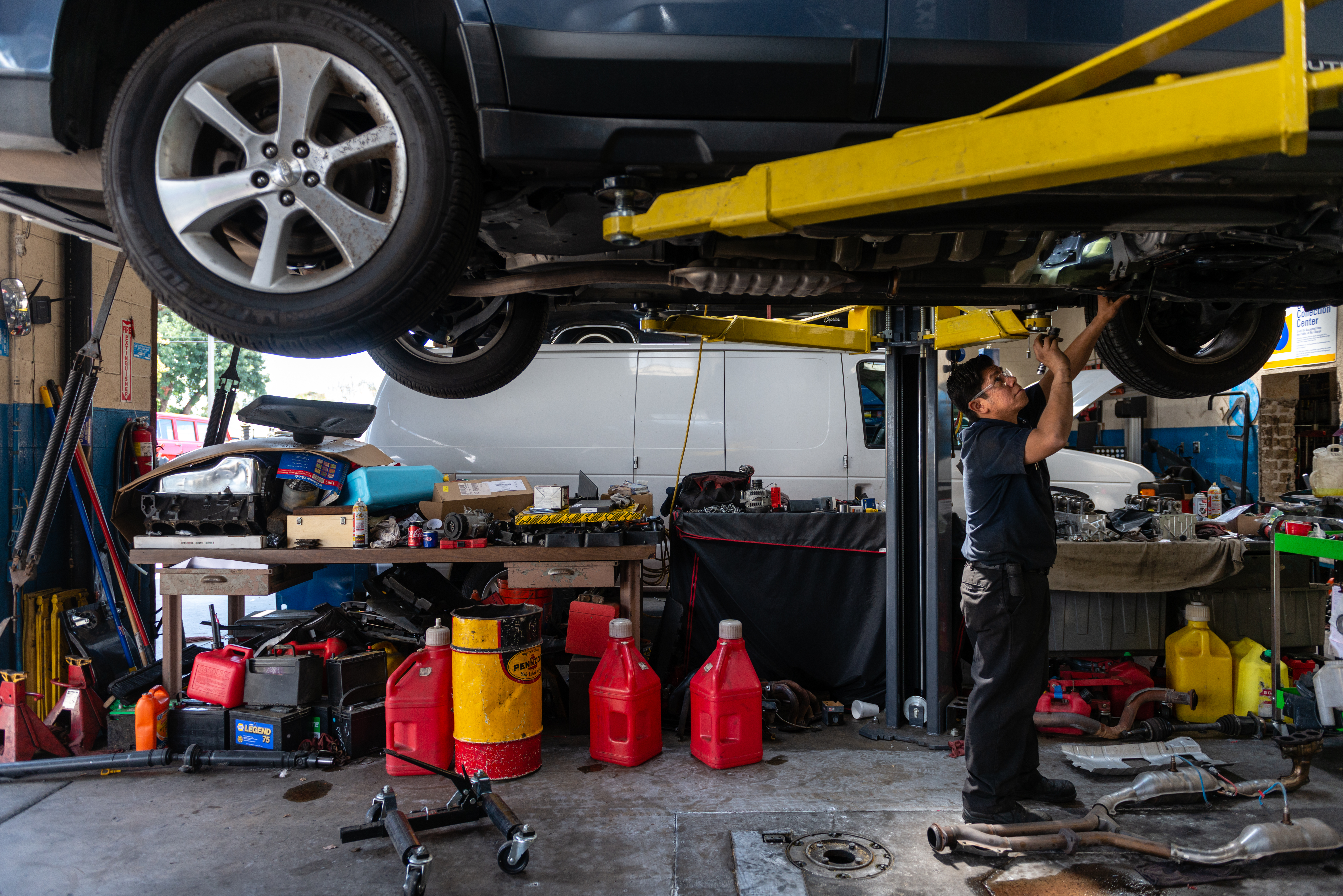
“Hemos acordado que si nos sentimos mal, nos quedaremos en casa”, Gustavo Rojas, de Monrovia, California. (Heidi de Marco/California Healthline)
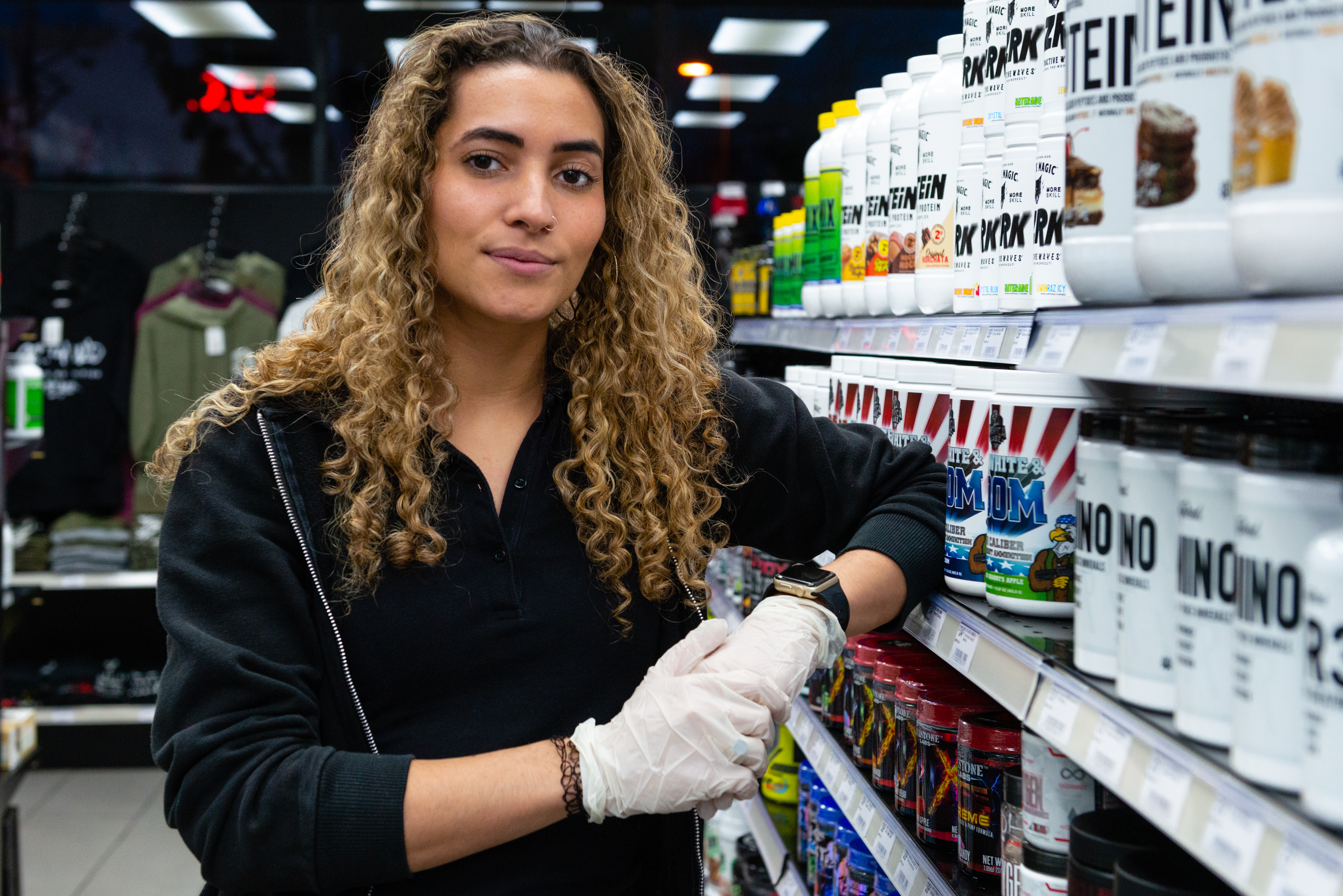
Victoria Garrido, de 23 años, trabaja en Get Yok'd Sports Nutrition, una tienda de suplementos y productos de nutrición en Pasadena. Las ventas han bajado un 70% desde que entraron en vigor las órdenes de “quedarse en casa”, según el propietario Sarb Derzakarian. Con sólo unos 25 clientes al día, dice, no sabe cuánto tiempo podrá mantener la tienda abierta. (Heidi de Marco/California Healthline)
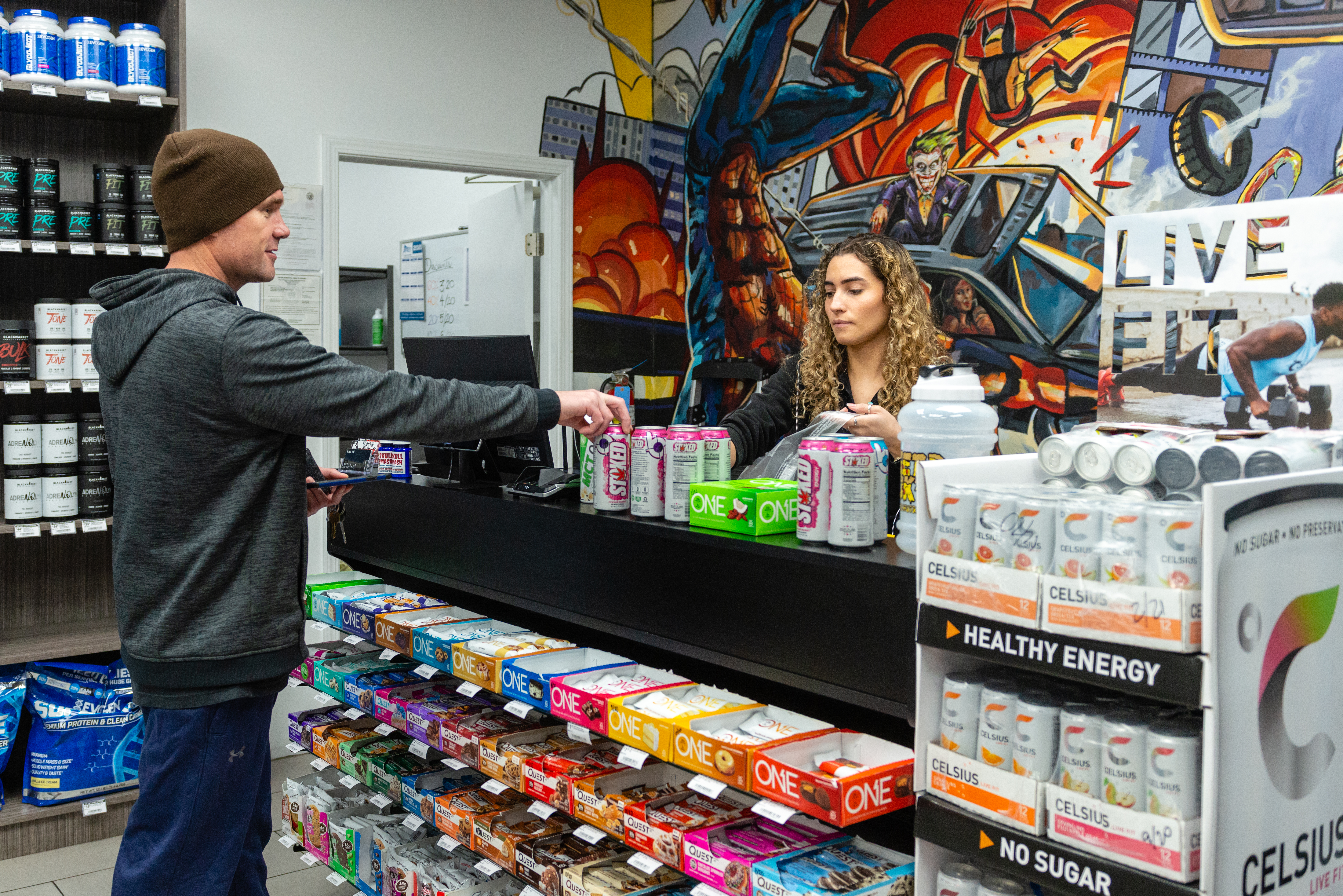
Garrido y otros empleados desinfectan después que se va el cliente. Garrido limpia las manijas de las puertas, las máquinas de tarjetas de crédito y cualquier otra cosa que el cliente haya tocado. "Quiero usar una máscara", dice Garrido, "pero es difícil trabajar así". (Heidi de Marco/California Healthline)
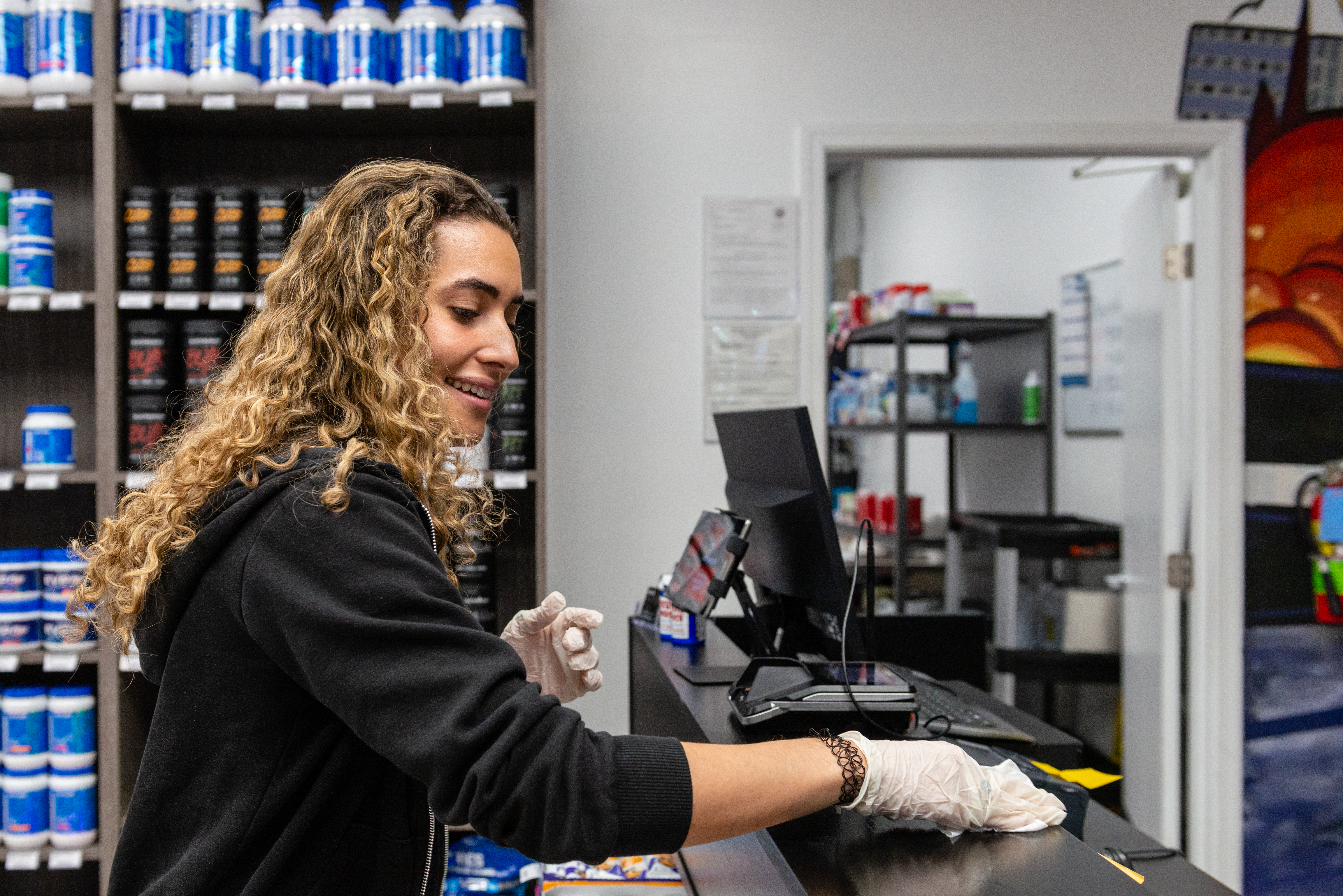
Garrido y otros empleados desinfectan la caja registradora y todas las superficies que toca cada cliente. "Quisiera usar máscara, pero es difícil trabajar así". (Heidi de Marco/California Healthline)
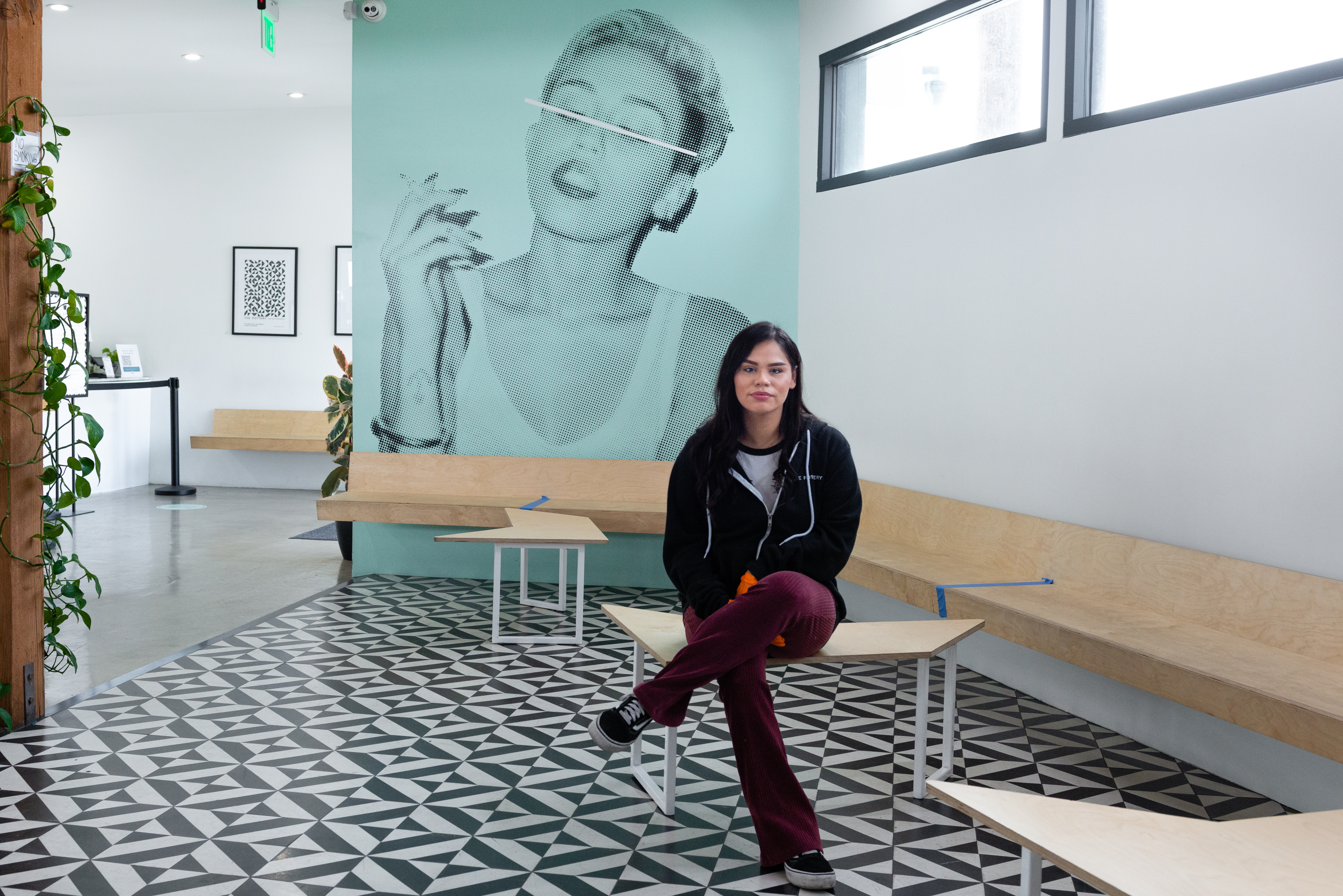
Tommie Ramírez, de 29 años, trabaja en The Pottery, un dispensario de cannabis en el barrio de Mid-City en el centro de Los Angeles. Ramírez usa guantes en el trabajo y practica el distanciamiento social, pero le preocupa la posibilidad de llevar el virus a la casa de sus padres mayores. (Heidi de Marco/California Healthline)
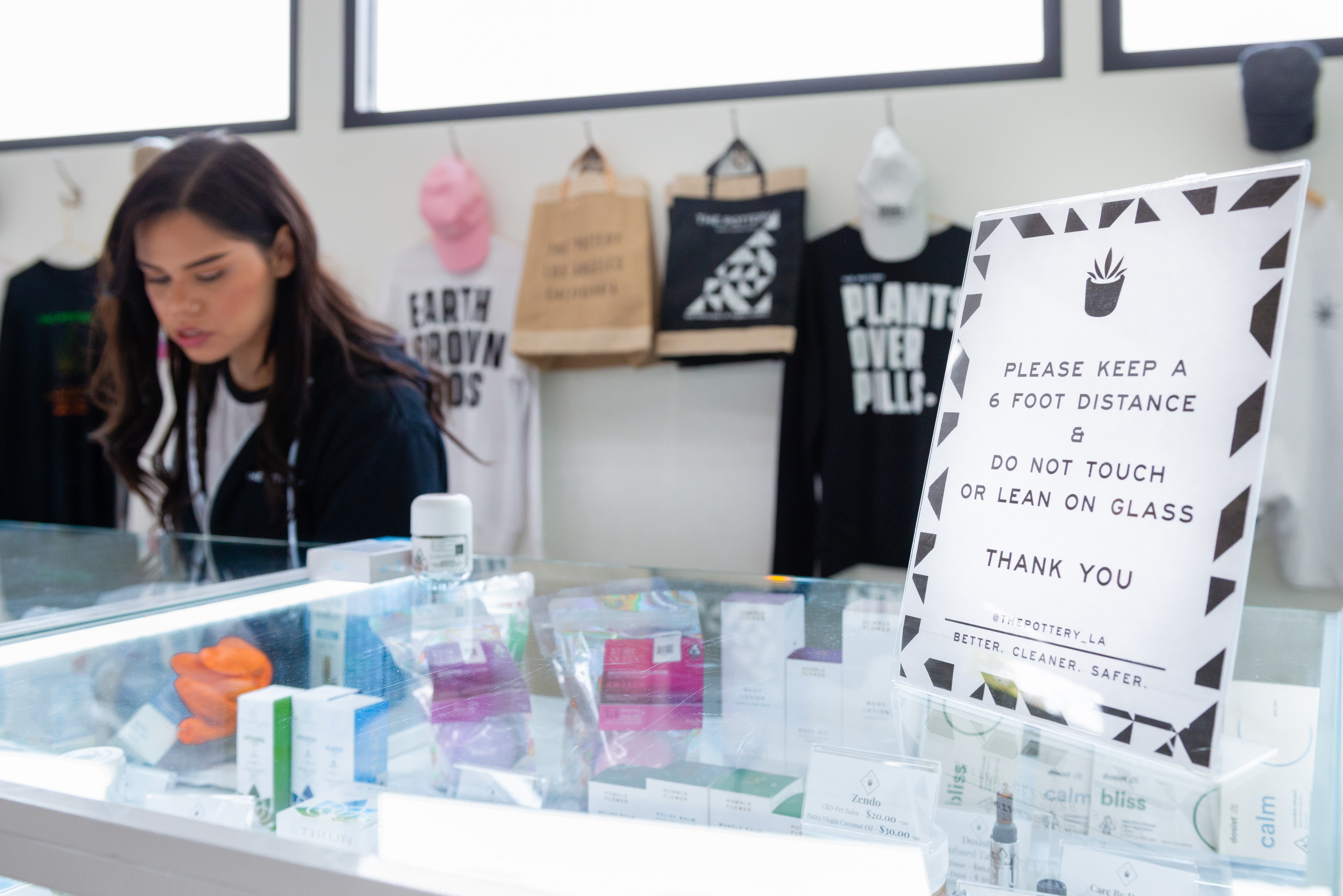
Ramírez agarra una tintura de cannabis para un cliente. El dispensario ha tomado precauciones para mantener a empleados y clientes seguros, incluyendo la colocación de carteles alrededor de la tienda. (Heidi de Marco/California Healthline)
Esta historia de KHN se publicó primero en California Healthline, un servicio de la California Health Care Foundation.



